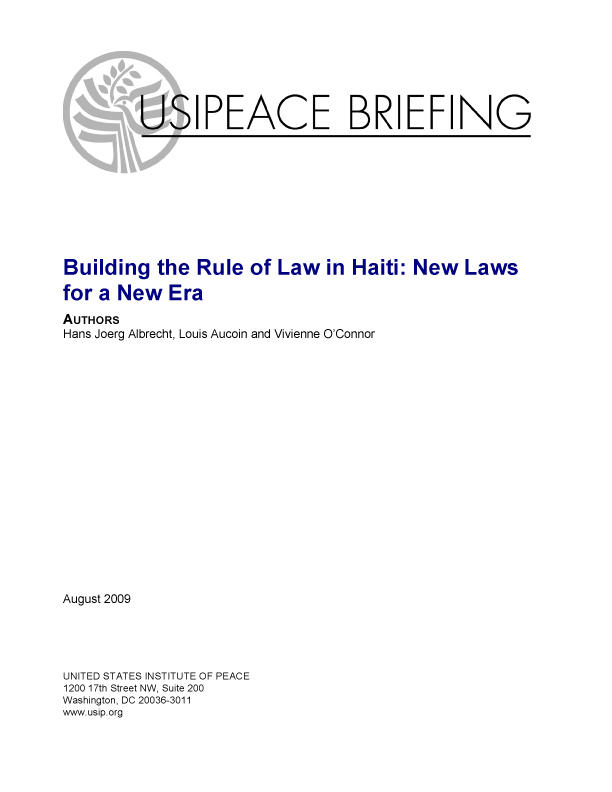A new USIP report on Haiti's criminal laws examines the shortcomings of the impoverished country's criminal code – and finds promising opportunities to modernize and reform the laws. Despite Haiti's numerous challenges, the report concludes that new laws in Haiti will usher in a new era where the criminal justice system serves all people of Haiti, including the poor, vulnerable and marginalized, and upon which respect for the law and legitimacy of a stronger judicial system overall can be built.

Overview
USIP is working with lawmakers and legal specialists in Haiti to reform and update the country's criminal laws that date back to the early 19th century. In the report, "Building the Rule of Law in Haiti: New Laws for a New Era," authors Hans Joerg Albrecht, Louis Aucoin and Vivienne O’Connor examine the shortcomings of the current criminal laws and opportunities to reform the criminal code. The report finds promising signs that Haiti's criminal laws, and thus its criminal justice system, will undergo huge transformations in the coming years.
Despite Haiti's numerous challenges, the authors conclude that new criminal laws will herald in a new era where criminal laws serve all the people of Haiti, including the poor, vulnerable and marginalized, rather than just the rich and powerful, and upon which respect for the law and the legitimacy of a stronger justice system can be built.
About the Authors
This USIPeace Briefing was written by Vivienne O’Connor, a senior adviser in the Rule of Law Center of Innovation at the United States Institute of Peace, Hans Joerg Albrecht, director of the Max Planck Institute of Foreign and International Criminal Law, and Louis Aucoin, professor at the Fletcher School at Tufts University.